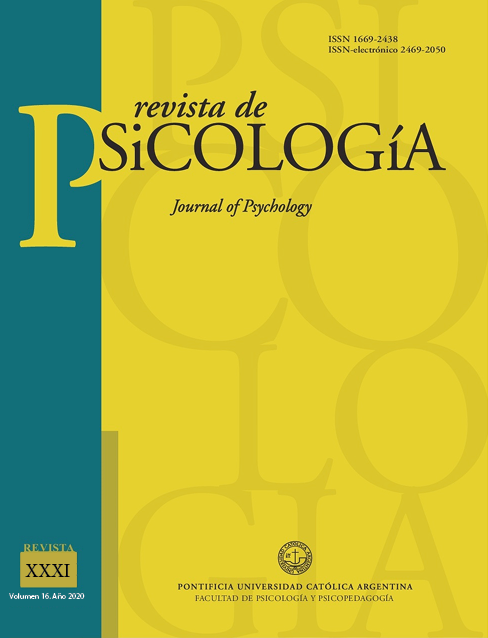Representación melódica transformacional, procesos cognitivos implicados
Palabras clave:
Melodía tonal, procesos cognitivos, espacio transformacional.Resumen
La melodía es uno de los elementos fundamentales de la música tonal representada por el oyente. Su estudio a través de la correspondencia entre teorías analíticas y de comprensión musical, permite profundizar la investigación de la percepción y representación del fenómeno música. En el presente trabajo se correlacionan distintas teorías proponiendo a su vez, un nuevo modelo teórico denominado ‘Representación Melódica Transformacional’ (‘RMT’). Sustentado en la creación de un espacio donde tanto la melodía tonal como la realidad psicológica de su oyente se sitúan, siendo establecidas por una modelización transformacional.Descargas
Citas
Berry, W. (1987). Structural Functions in Music. New York, United States of America: Dover Publications.
Clavijo, A. (2007). Lo Psicológico como un Evento. Bogotá, Colombia: Universidad Nacional de Colombia.
Cooper, G. B. & Meyer, L. B. (1960). The Rhythmic Structure of Music. Chicago, Illinois, United States of America: University of Chicago Press.
Erut, A. & Wiman, F. 2012. El Espectro Métrico en el análisis musical. Revista - Instituto de Investigación Musicológica Carlos Vega, (26), pp. 509-547.
Jackendoff, R. (1992). Languages of the Mind: Essays on Mental Representation. Cambridge, Massachusetts, United States of America: MIT Press.
Jackendoff, R. (2002). Foundations of Language, Brain, Meaning, Grammar, Evolution. New York, United States of America: Oxford University Press.
Kim, J. (1993). Supervenience and Mind. New York, United States of America: Cambridge University Press.
Lerdahl, F. & Jackendoff, R. (1977). Toward a formal theory of tonal music. Journal of Music Theory, (21), pp. 111-171.
Lerdahl, F. & Jackendoff, R. (1983). A Generative Theory of Tonal Music. Cambridge, Massachusetts, United States of America: MIT Press.
Lerdahl, F. (2001). Tonal Pitch Space. New York, United States of America: Oxford University Press.
Lewin, D. (2010). Generalized Musical Intervals and Transformations. New York, United States of America: Oxford University Press.
Lindblom, B. & Sundberg, J. (1969). Towards a generative theory of melody. Department for Speech, Music and Hearing Quaterly Progress and Status Report, 10 (4), pp. 53-86. Stockholm, Sweden: Royal Institute of Technology.
Meyer, L. B. (1956). Emotion and Meaning in Music. Chicago, Illinois, United States of America: University of Chicago Press.
Meyer, L. B. (1973). Explaining Music: Essays and Explorations. Berkeley, California, United States of America: University of California Press.
Narmour, E. (1990). The Analysis and Cognition of Basic Melodic Structures: The Implication-Realization Model. Chicago, Illinois, United States of America: University of Chicago Press.
Narmour, E. (1992). The Analysis and Cognition of Melodic Complexity: The Implication-Realization Model. Chicago, Illinois, United States of America: University of Chicago Press.
Ottman, R. W. (1967). Music for Sight Singing (2da. ed.). Englewood Cliffs, New Jersey, United States of America: Prentice-hall.
Palmer, S. E. (1983). Human and Machine Vision. The Psychology of Perceptual Organization: A Transformational Approach. London, England: Academic Press.
Samaja, J. (1995). ¡La Bolsa o la Especie! Arte e Investigación, 1 (1), pp. 21-35.
Schenker, H. (1954). Harmony. Chicago, Illinois, United States of America: University of Chicago Press.
Schenker, H. (2001) Counterpoint, vol. I. Ann Arbor, Michigan, United States of America: Musicalia Press.
Schenker, H. (2001) Counterpoint, vol II. Ann Arbor, Michigan, United States of America: Musicalia Press.
Sloboda, J. (2005). Exploring the Musical Mind. New York, United States of America: Oxford University Press.
Temperley, D. (2001). The Cognition of Basic Musical Structures. Cambridge, Massachusetts, United States of America: MIT Press.
Descargas
Publicado
Cómo citar
Número
Sección
Licencia















